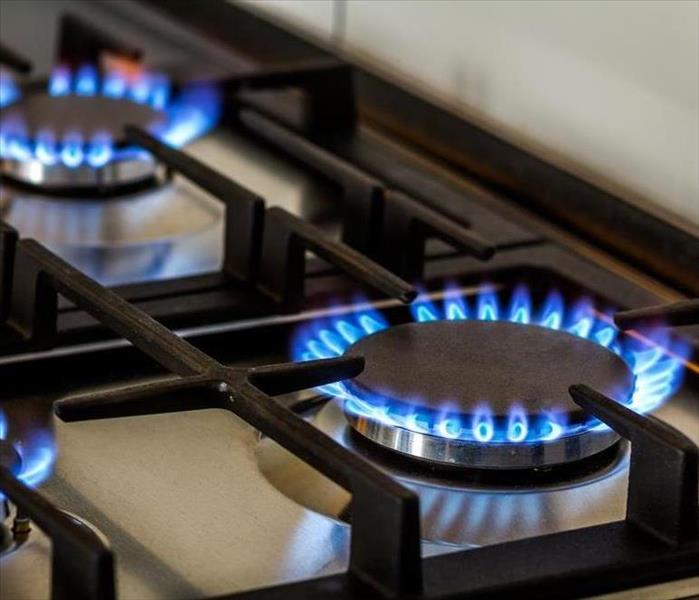Natural Gas Safety and Fire Prevention Tips
7/23/2021 (Permalink)
 To keep homeowners safe from a gas explosion, fire recovery and restoration experts recommend proactive maintenance on every gas appliances.
To keep homeowners safe from a gas explosion, fire recovery and restoration experts recommend proactive maintenance on every gas appliances.
Safety and Fire Prevention Using Natural Gas
Natural gas is a simple carbon-hydrogen, air-like compound that has no unpleasant odor. In order to keep people safe, a rotten egg smell is added by the businesses that distribute the gas to home suppliers. The sulfuric odor is meant to alert homeowners to a dangerous situation because as the smell becomes noticeable, the presence of the highly combustible gas can pose a great threat to homes, animals, and human life. A natural type gas fire is one of the most explosive situations a property owner can experience, and one of the most devastating as well.
Safety Tips
Because of the explosive nature of natural gas, there are some expert-backed safety tips regarding steps to take the moment you notice the unpleasant odor of rotten egg-infused gas. So, if you notice the tell-tale smell, take care to do the following:
Extinguish all open flames including cigarettes and candles.
Turn off any flames powering appliances such as water heaters or gas stoves.
Refrain from flipping any electrical switches on or off.
Leave the area and contact authorities as soon as possible – but not from a phone inside your home.
Furthermore, it is important to take all pets out of the house to prevent potential harm or injury.
Prevention Tips
Natural gas is a huge part of many people’s lives in Rest Haven, GA. From ovens to barbeques, there are many ways people heat and cook with the explosive gas in daily life. To keep homeowners safe from a gas explosion, fire recovery and restoration experts recommend proactive maintenance on every gas appliances at least once a year. The same maintenance should also be done on gas lines into the house and all appliance supply gas joints. Installing a carbon monoxide detector and refusing to sleep in a room heated by gas can also prevent serious injury from a gas fire.
Security Tips
If you do happen to smell a leak, don’t attempt to locate the source of the natural gas. It is always important to remember that the smallest spark can ignite a gas fire.






 24/7 Emergency Service
24/7 Emergency Service